- Does NA have authority to inquire into acts of private citizens? IHC asks.
- Which public authority is authorised to record private conversations?
- Who will be held responsible if no legal grounds for recording found?
ISLAMABAD: A day after Islamabad High Court (IHC) asked the government to inform it about the elements responsible for recording audios, Justice Babar Sattar issued a notice to the Secretary of the National Assembly raising a number of questions, including whether the law permitted the surveillance and secret recordings of citizens.
The seven-page long order sheet was issued by Justice Babar in response to a petition filed by Najam Saqib, son of ex-CJP Nisar, against a special committee formed by National Assembly Speaker Raja Pervaiz Ashraf to probe audio clips allegedly featuring his voice.
Najam, in his plea, had submitted that the proceedings of the Aslam Bhootani-led NA special committee be stopped.
Subsequently, the IHC stayed with the NA committee, demanding, instead, to know the “elements” behind the leaks.
Now, in its detailed order, the federal capital’s top court has asked the NA to answer five questions pertaining to the matter. These questions range from parliament’s authority to inquire into acts of private citizens to which agency is permitted to record calls of private citizens.
The order also asks the NA secretary to inform the court, which public authority or agency will be held liable for such surveillance if it is discovered that there were no legal grounds for such recording.
The questions
1. Is parliament vested with legal authority to inquire into and investigate acts of private citizens who hold no public office or whether assuming such power intrudes into the domain of the executive?
2. Does the Constitution and the rules framed under it to regulate parliamentary procedure vest in the office of the speaker National Assembly the authority to constitute a special committee to investigate actions attributable to a private citizen who is not a member of parliament or a public officeholder?
3. Does the Constitution or statutory law empower the executive, and in the present case the federal government, to record or surveil phone calls or telecommunication between private citizens, and if so the supervisory and regulatory legal regime within which such recording and surveillance can take place?
4. To the extent that recording of phone calls is permitted, which public authority or agency is authorized to do so, how is the right of a citizen to liberty and privacy to be balanced against the interest of the State in recording phone calls or undertaking surveillance and which agency is vested with legal authority to undertake such balancing exercise? and
5. In the event that there is no legal sanction to tap phones, record telecommunication between citizens or undertake surveillance, which public authority or agency is to be held liable for such surveillance and encroachment over the right of citizens to liberty and privacy and/or release of illegally recorded private conversations to the public?
The petition
The petition filed by Najam on Tuesday requested the IHC to suspend the proceedings of the committee and stop it from taking any punitive action. He contended that the alleged audios breached his privacy and it was illegal surveillance. He requested the court to declare that recording a private person’s personal conversation was a violation of basic human rights.
He further said the committee formed by the NA speaker to probe the audios was illegal.
The summons issued by the committee secretary without any meeting of the committee — asking Najam, his father and two other persons to appear in person — are also illegal, the petition claimed.
The IHC registrar’s office, however, had raised objections to the petition saying that the matter was already pending with the Supreme Court. The registrar also contended that two different types of pleas could not be made in a single petition. It said, on the one hand, the petitioner had challenged the notification of the committee while, on the other hand, he also requested the court to declare the recording of audio as illegal.
Special committee
NA Speaker Raja Pervez Ashraf on May 3 set up a special committee to investigate Najam’s audio, in which he can be heard selling a Pakistan Tehreek-e-Insaf (PTI) ticket to a candidate of the Punjab provincial assembly, claiming that his father had to work hard to get the ticket sanctioned — according to a notification from the assembly.
Mohammad Aslam Bhootani was appointed as chairman of the committee, which includes Shahida Akhtar Ali, Muhammad Abubakar, Muhammad Barjees Tahir, Sheikh Rohale Asghar, Syed Hussain Tariq, Naz Baloch, and Khalid Hussain Magsi.
Audio transcript
Here is the transcript of the alleged audio call between Najam Saqib and Abuzar Chadhar:
Abuzar Chadhar: Sir..sir, Assalamo Alikum.
Najam Saqib: Yes.
Abuzar Chadhar: Your efforts have paid off.
Najam Saqib: I have received the information.
Abuzar Chadhar: Okay sir.
Najam Saqib: Now tell, me what needs to be done now.
Abuzar Chadhar: We are getting the tickets printed. These should be printed. We cannot delay this matter as we are running short of time.
Najam Saqib: You just come to meet Baba to thank him. Nothing else.
Abuzar Chadhar: Yes obviously, what are you talking about?
Najam Saqib: He will come back by 11 o’clock. You just come to give him a hug. He has worked hard a lot.
Abuzar Chadhar: Very much. I was wondering if I should visit the uncle (Saqib Nisar) first or come after submitting the ticket.
Najam Saqib: As you wish, but make sure that you meet Baba today.
Abuzar Chadhar: Yes obviously, [I] have to come straight to him [Saqib Nisar].
Najam Saqib: Alright then.
Abuzar Chadhar: The time will end at 12 o’clock.
Najam Saqib: Get the ticket printed, send the picture and then come after doing that.
Abuzar Chadhar: Okay.
Following is the transcript of the alleged audio call between Najam Saqib and Mian Uzair:
Najam Saqib: Check WhatsApp.
Mian Uzair: Oh yes, has Abuzar sent this to you?
Najam Saqib: Yar (my friend) I’m also a lawyer.
Mian Uzair: No. Has Abuzar sent this to you or [did you] receive it directly?
Najam Saqib: I can receive it directly as well. It’s not necessary that Abuzar sends everything.
Mian Uzair: You want me to bypass him?
Najam Saqib: Do it if you want to, but I have received it from him.
Mian Uzair: Okay
Najam Saqib: So who got the job done… No one else has done it.
Mian Uzair: Okay good then.
Najam Saqib: What’s the scene now?
Mian Uzair: I will talk, okay?
Najam Saqib: What do you mean by you’ll talk about it? It was done and decided.
Mian Uzair: Let me call and tell them to deliver the goods to me.
Najam Saqib: Not only deliver the goods. Don’t take less than 120 or else I’ll break your legs.
Mian Uzair: Yar (buddy) you are again saying such things …. on the phone.
Najam Saqib: Yar Uzair, I don’t have any issue with that. Don’t take less than 120 from him.
Mian Uzair: okay
Najam Saqib: I’m telling you that I’m not joking. This is a big deal Uzair.
Mian Uzair: Brother I have given my word. I am not…
Najam Saqib: You become a … become a … for me. Or I will not even talk to you.
Mian Uzair: Okay then, I’ll do it.
Najam Saqib: Or else I will deal with him directly. What else can I do other than that?
Mian Uzair: Say it directly, it’s better.
Najam Saqib: He is coming to the office after submitting the ticket. You also come if you want to.
Mian Uzair: Okay.
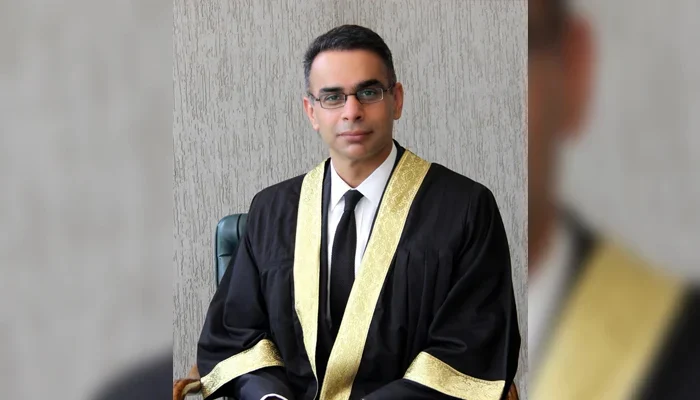

 Business20 hours ago
Business20 hours ago
 Pakistan20 hours ago
Pakistan20 hours ago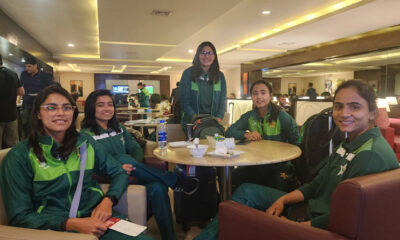
 Latest News20 hours ago
Latest News20 hours ago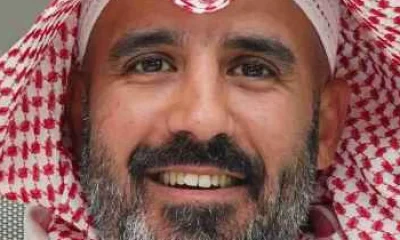
 Business20 hours ago
Business20 hours ago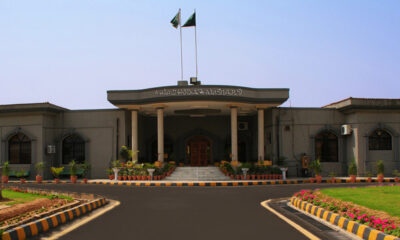
 Latest News20 hours ago
Latest News20 hours ago
 Business21 hours ago
Business21 hours ago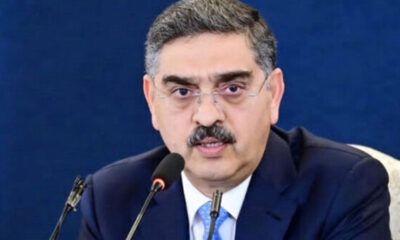
 Latest News20 hours ago
Latest News20 hours ago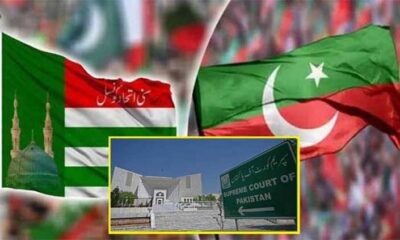
 Pakistan20 hours ago
Pakistan20 hours ago










